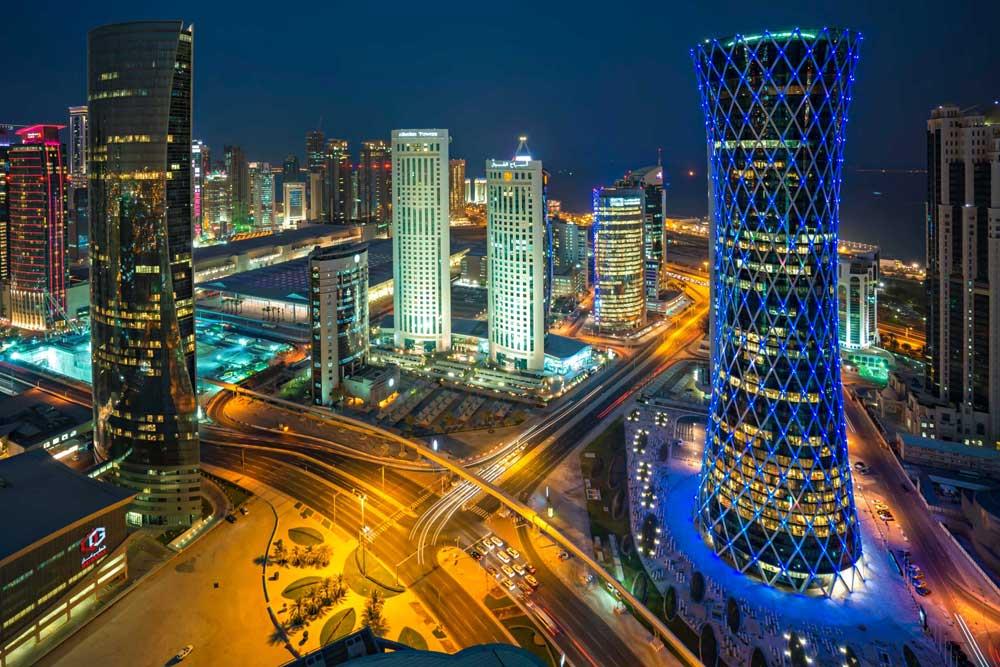
'Outlook For Non-Energy Sector Remains Robust'
DOHA: Qatar's non-energy sector is positioned for strong growth. The country's commitment to actively pursuing an economic diversification agenda has created many lucrative opportunities for savvy investors.
Speaking to The Peninsula, Scott Livermore, ICAEW Economic Advisor and Chief Economist and Managing Director at Oxford Economics discussed the outlook for the energy and non-energy sectors in the region.
Oil output cuts mean that the energy sectors will be a drag on economic growth in the Gulf Cooperation Council (GCC) this year and“we forecast a decline of 2.6 percent. However, the outlook for the non-energy sectors remains robust. The PMIs remain firmly in expansionary territory, underpinned by strong domestic activity, with business sentiment running high despite some upward pressure on costs. We project aggregate non-energy growth of 4.2 percent for the GCC this year, similar to last year,” he said.
Sharing insights regarding projections in GDP growth of Qatar and GCC, Livermore said,“At the GCC level, we anticipate a gradual recovery and project growth of 2.2 percent this year, picking up to 4.4 percent as oil output cuts are unwound.”
“For Qatar, we forecast 2024 GDP growth of 2.2 percent, with the pace seen rising to 2.8 percent in 2025. Non-energy sector momentum is strengthening as we enter second half (H2) of this year, benefitting from higher activity and robust sentiment. We project the non-energy economy will expand by 2.5 percent this year. Meanwhile, industry remains under pressure, mirrored in some softening of goods exports,” he added.
Qatar will accelerate economic growth to an average of 4 percent per year to 2030, driven by its expanded gas production and economic diversification. As part of the diversification agenda in NDS3, Qatar aims to build a top-10 destination for investors and businesses, develop specialised economic clusters, and foster a vibrant business-led innovation ecosystem.
The country will also focus on boosting labour productivity, with a 2 percent average yearly target, to drive economic growth, create high-skilled jobs that can support higher wages, and maintain a sustainable rate of population growth that does not add pressure to social fabric and infrastructure requirements.
The latest Economic Insight report for the Middle East, commissioned by ICAEW and compiled by Oxford Economics, predicts slow recovery for the region in 2024 due to extended oil production curbs. The GCC growth forecast has been revised down to 2.2 percent from 2.7 percent three months ago, though non-energy sectors remain resilient, including in Bahrain and Qatar.
High-frequency data paints a positive outlook for non-energy sectors across the GCC. In Saudi Arabia, investments are expected to flow into key sectors supporting giga-projects, including construction, manufacturing, and transportation. Strong momentum in the sports and entertainment sector will also be seen as the country's transformation continues hospitality sector will likely follow, with tourism remaining key to Saudi's growth agenda. Tourism is a strategic sector in other countries too, and will remain a key growth driver. Tourism activity has rebounded strongly, with record visitor numbers across the GCC in 2023, extending into this year.

Legal Disclaimer:
MENAFN provides the
information “as is” without warranty of any kind. We do not accept
any responsibility or liability for the accuracy, content, images,
videos, licenses, completeness, legality, or reliability of the information
contained in this article. If you have any complaints or copyright
issues related to this article, kindly contact the provider above.


















Comments
No comment